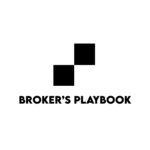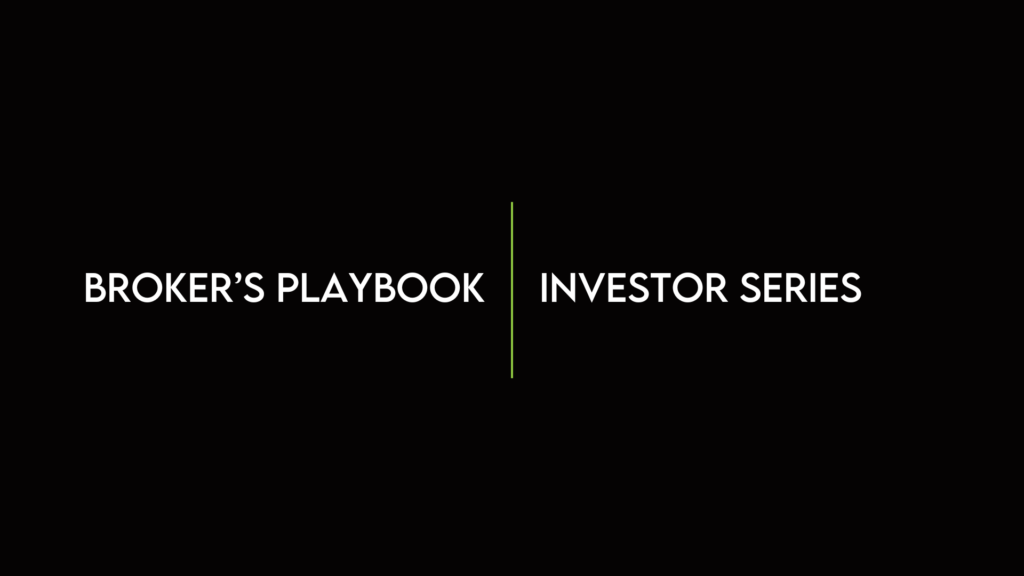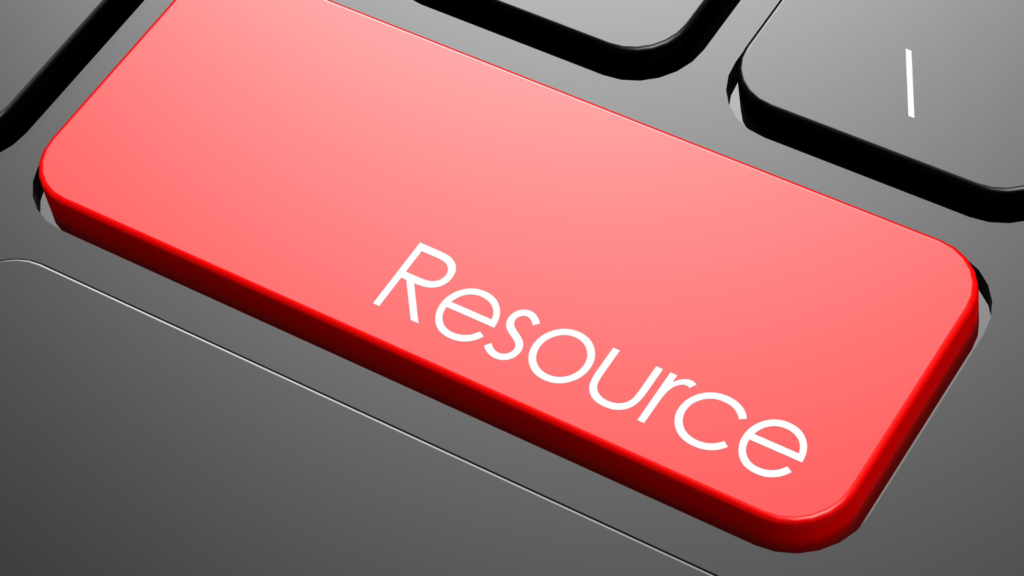
In order to be successful in real estate, you need to have the right mindset.
Welcome to the Broker’s Playbook podcast, where we provide valuable insights and strategies to help you excel in real estate. In today’s episode, we’re joined by renowned coach and speaker Kathleen Black to discuss the importance of mindset in achieving success in real estate.
Whether you’re just starting out or a seasoned pro, having the right mindset is critical for success. Kathleen shares practical tips for staying disciplined and consistent, and we’ve also gathered some great resources to help you further develop a success mindset.
For more real estate training and coaching, check out MindTools’ guide on developing a success mindset, and real estate mogul Barbara Corcoran’s inspiring TED Talk on achieving success. You can also find our Resources section for practical tips, tricks, and tools to expand your mindset!
Tune in now to the Broker’s Playbook podcast to learn how to get the right mindset for success in real estate.
Simeon Papailias: What’s up Brokers Playbook! It is Simeon, and I’m super excited to introduce tonight’s episode. Kathleen Black will be joining me from Kathleen Black, coaching and consulting. Kathleen has an incredible story. She’s written a few books. She has had a documentary made about her amazing comebacks and her amazing challenges and how she overcame them. Stay tuned and get us some great feedback after the show.
What’s up Broker Playbook. Here I am with Kathleen Black. Kathleen, welcome to Brokers Playbook. How are you?
Kathleen Black: I’m good. I’m excited to be here. Thank you for having me. Simeon.
Simeon Papailias: I’m so excited to have you here and I’m excited to have you talk about your story. Talk about all the things you’re working on now. I had my team look into you and they didn’t have to dig much to see that you are an absolute tornado. You make a lot of noise, your presence is felt everywhere and you are very powerful. And that’s exactly the type of people that I that inspire me personally. And I can’t wait for our audience to hear more about you.
Kathleen Black: Thank you. Appreciate it.
Simeon Papailias: You’re most welcome. Tell me a little bit about who you are and why. Why do people need to listen to your message, Kathleen?
Kathleen Black: Who I am and why they need to listen to my message. Well, you know, I think at the root of it, I’m a person that truly believes everything that happens to us in life is to give us a gift. And I know a lot of people say that, but I think, you know, if every time we go through a hurdle, we kind of look at it and we say, how is the for me, I’m very, you know, into energetics and I believe in frequency. And it’s like, how is the universe giving me this little poke of saying, Hey, I’m giving you this little problem or this little hurdle because you have an ability to learn something here that’s going to help other people and that you can do better. And I think I’ve approached that the same way when it comes to systems and processes as I do when it comes to mindset or, you know, very difficult hurdles in life. So my whole life is about making the tough things worth it by paying it back, you know, ten times forward. So I’d like to think I’ve been able to help a lot of people because some hard things have happened to me and that makes me feel really good, to be honest.
Simeon Papailias: When you say hard things happen to you, are you talking about in business, in life? And do you care to talk about a few of those things to give some context as to how you got driven forward?
Kathleen Black: Well, I think both in business and life. I mean, I’m a woman who’s built in the coaching space. You know, I’ve turned around one coaching company and then sold my half of shares in that company and then started my own and that that’s its own journey. I mean, anybody in the real estate space is well aware that we don’t have any of the top. You can call them coaches or thought leaders or whatever you like that are women in that in that space. And I think we need to you know, we have a higher percentage of women selling. So it’s important to be able to there’s a saying that I hear a lot. You need to be able to see her to be her. I think some leaders are meant to create things that are not, you know, in existence, but they’re really small percentage of people. And I think you need to see her to be her. But in my case, I feel like I also relate to people because I’ve been her in order to see her, you know, I’ve been the single mom selling real estate. I’ve been the one, you know, in a messy divorce without any income and going, Wow, like, you better get good at real estate really quick, lady, or you need to leave this career Like I’ve been there.
Kathleen Black: I’ve been locked out by a business partner and had to, like, leverage my mortgage, like my equity in my house and stand up for myself. I’ve been through those walks, right? Like, so I think I relate to a lot of women and men. Like I coach more men than women over the years, but I relate to those who just have that spirit to rise in any type of obstacle or adversity. And I think entrepreneurs do that all the time. I was on a show a couple of weeks, so I’ve been on several times and the host said to me, like, Kathleen, do you look for hurdles? Like, Are you looking for them? I said, No. Whenever you’re looking to grow and truly walk your journey, you’re going to fall down ten times more. And that’s why you have to be so brave, because the world’s going to see you do it. And it’s like, if I have to fall 100 more times to walk my path, that’s okay. That’s that’s part of it. And I’d like to think I transfer some of that belief to the people around me as well.
Simeon Papailias: Well, it’s funny you mentioned that, because people, for whatever reason and I and I do not understand why are so against sharing their failures and challenges. I don’t know if it makes them feel weak. I don’t know if it’s an ego thing or an insecurity thing, but there is literally not a single time of my life that I have accomplished something without failing at it literally a dozen times. First, I have never accomplished any win without using lessons from failure to win.
Kathleen Black: Absolutely.
Simeon Papailias: And that, to me, just makes sense. Like, how could you possibly lift this cup using the amount of strength? For example, I’m just for those listening on the podcast, I’m, I’m just lifting a Tim Hortons coffee cup. Why wouldn’t I pull with all my might and throw this cup in the air? Because I’ve lifted it before. I know how much it weighs. And I’m going to exercise just enough power to put it up to my face. Logical. And it applies to everything you have to repeat. You have to practice. You have to fail first. Lift it too strong and spill it everywhere. Make a mess. Sure. All you have to do is put the clothes in the wash, take them off, put them back on and lift it again. And you’re good to go.
Kathleen Black: Yeah.
Kathleen Black: Absolutely.
Simeon Papailias: Where do you think that that fear of failure stems from? Is it a systematic. Cultural thing. Is it the is it the Instagram? Everything is shiny and beautiful thing. Where do you think people’s insecurity or uncomfort with failure comes from that? It’s so deep.
Kathleen Black: Yeah, sure. I mean, the Instagram social media, like that’s a whole other, other side, right? Like anybody can be an instant success online behind a screen. Right. And that’s yeah, that’s a whole other other topic that irks me a little bit. But I think, I think the fear of failure sometimes is a couple of things. Like you just talked about the logical mind. Our logical brain is processed based on our past. So if we’ve had times where things were difficult, we have to realize that everything we do with our logical brain is based on past programming. So we have to be able to put new visions. And I said at the start of this, all leaders are creators. And I say this like every day, probably ten times a day. It’s like if you want to lead something or create something, you have to have a vision. All leaders are creators. If you have management without vision, you’re not going to go anywhere, right? So I think the risk is in feeling like anything that’s happened in the past is going to be the same outcome. Right? We took a risk. It didn’t go well. But what all great leaders do is they create a vision. They start to act towards it. They build muscles in it and then all of a sudden, over time, they start realizing, holy, Like I’m actually creating my outcomes. Like I’m actually creating the changes. Everything I do today is building my tomorrow.
Kathleen Black: Literally. It’s just choices and changes which we hear about all the time. So I have great reverence. We do something called the Letter from the Future. I do it personally have for about 15 years, but all of our clients do it. It’s like pen to paper to merge that unconscious with your conscience so you can be in a place of creation and that’s where you can get that great energy going. And I find when people see the vision and they start to realize, stop waiting for the future, leaders are creating the future, they’re not waiting. And it just shows up. They start to year over year, they write this letter. More comes true, more comes true, more comes true. And all they’re doing is seeing the proof of like, oh my gosh, like, I have the power to do this. And once people are in that position, they know not taking educated risk costs them the most, which I think all entrepreneurs know. But we’re taught like either you’re born entrepreneur or you’re not. Well, it’s, you know, the studies which will change in our lifetime. So that’s not quite true. Like a big part of it is who you’re around, you know, are you around entrepreneurs, are you around people like play it safe, play it safe, play it safe, and they’re in your ear. So you play it safe, right? You’re not going to take a risk if the people around you aren’t. Very few will.
Simeon Papailias: I absolutely love that. And well, I will tell you, you’re speaking to someone when my personal belief system and the way I’ve lived my entire life is when people start drawing back is when I literally go balls to the wall and on a on a full offensive at all times. So I’m on, I’m on I’m on the offensive at all times to begin with. And I share that trait with one of the best human beings that I’ve ever met who is my partner of 15 years jazz Tacker We’ve gone through when I say challenges and and life, we’ve been served up some pretty crazy circumstances our entire career. And the pandemic was no different. And when our partner passed away, it was no different. And with growth and challenges and all the things, we’ve been now through 2 or 3 crazy little markets and we’re going through it now. But the one thing that we don’t do is back away because to back away and retract it makes no sense at any level. If you’re if you’re strategically closing down things to focus somewhere else, that’s not retracting, that’s shifting strategy. But people who retract and and pull, pull back and fire and take away their infrastructure in order to shield themselves from less income coming as opposed to finding opportunity in any market to me is wrong. So I always seek so so what’s happening in our market today and this is timely and this episode is going to is going to impact a lot of people because.
Simeon Papailias: I’m going to I’m going to ask you for your direct and practical advice on what you would do if your boots on the ground selling right now and as a coach to some of the most successful people. I’m going to take some of that advice. I’m going to have our our audience take your advice, implement it and give us feedback. So right now, it is my absolute advice that every single person listening needs to get their equipment, shine their shoes, get all their ammunition on your back and off to work. This is a time to go on the offensive because just like our regular clients, a lot of agents are shaking in their boots, fearful what’s happening in the market. I don’t even understand what’s happening in the market. And if that’s your competition, people who will not read empower themselves and educate themselves to serve their clients. This is the time to literally build your clients on other people’s inaction. You can literally build a business from other people’s clients because they’re not acting fast enough and they’re not educating their clients during one of the most crucial times in real estate. Do you see the same opportunity, Kathleen?
Kathleen Black: Well, yes. I mean, first of all, we were talking about, you know, people were cutting costs and trying to shelter. I mean, I call I have a whole story. We don’t have time for it. But that really helps with Self-coaching and with teams for performance, because first all performance are all top performers are process driven always. So any type of a shift in the market we’re looking at, okay, like you said, equipment. Do we need to switch to a different process? Are there pieces we haven’t been using because the market’s been different? You know, do we have tools to have conversations with sellers for price adjustments? Do we have tools to create confidence in buyers before we get them out there expecting?
Simeon Papailias: So you’re in the assessment stage. So right now you’re saying, okay, market is shifting, something is happening, Assess, assess what I have, assess what I have available to me that I haven’t been using and what do I need to do?
Kathleen Black: Yeah. Or and this is and this is why I mean, teams that are very systematic have an advantage when the market shifts. We don’t need to create the tools we have them. So we’re going, hey, remember, we’re okay, we’ve got this, let’s shift. And I find for most really top performing individuals or teams who already have the tools, it still takes us a good three weeks, some up to six weeks to shift their mindset. The tools are there, but like you said to me, it’s like, what am I saying to clients? What’s my value right now? So I always encourage, like brainstorm and make sure you got that language top of mind for sure, but you also have the tools. The other thing is always looking for opportunities because you, you made that reference again to cutting costs. We all know you want to cut the fat, not the muscle. Right. And I’m a big believer in the fear test. So the fear test I like to work with is you can tell yourself today, okay, I need to cut everything. The market’s shifting. It’s really important. You can write yourself ten pages of logical reasons why you should cut, why you should shelter, why you should pull back right now. But if you take all those same rationale and you put it on a trajectory of two years and then five years and it’s not still going to be positive and healthy, you know, it’s a fear mindset. Anything that you choose today that’s actually in a positive, educated risk, leadership space will be better for you in a 2 or 5 year trajectory.
Kathleen Black: So there’s always opportunities in any market. I’m really excited right now. We’re ready. A lot of our top teams work heavily with what I call mixed marketing matrix, which means they’re not only doing repeat and referral, they’re not only doing whatever some of them do open house, some do not. Not at the point, but they’re also doing digital marketing. You know, they’re doing other things to connect with potential consumers. And if you understand how to educate people and serve people instead of sell and push, this is a beautiful time. So our our teams and individuals who are very process driven are killing it right now. Like even I talked to a leader in one of the brokerage brands and she said, we don’t get it. Like some of our teams are swamped, like they’re super busy. Other ones are absolutely dead. Like, we don’t understand what’s going on. They have a process. They’ve been nurturing this the entire time. I always say, make sure you know where your wins are. Somebody had asked me about the supply chain issues, right, in sales. And I said, as sales leaders, we need to adjust our wins and focus on the parts of the process we can win at. And then when the sun comes down, confidence changes. We will reap those rewards. Whereas other people waited for the sun. They’re like 4 or 6 a year behind sometimes.
Simeon Papailias: And that’s simply not good enough. And what I’m trying to say is that it’s actually very simple. 15 years ago, myself and my partner, we did not exist in the real estate space. If we didn’t choose to get into real estate space, all the thousands of clients we have now would not be our clients. They would be somebody else’s. I want to make it very clear that I don’t believe in competition. Like I really don’t care about competition. I don’t care what other people are doing at all. I’m happy to see people succeed. I am absolutely the biggest fan of hard work because only hard work and actual dedication and consistency can build anything, anything at all. It takes time. There is no blue pill, there’s no red pill, there’s no anything. People have to understand that in a shifting market, the market that we live in today, right now, this second, where there is a consistent stream of negativity from a pandemic to a war to rising interest rates to inflation, the world is being bombarded with negativity. That’s just what it is. The news makes sure of it every single day. Poison. Poison. Poison. Because the fear is what drives sales and commercials and all the things. So logically, you have a down market mindset, meaning that everybody you speak to is going to be negative first. If anybody is looking for a value proposition, all you have to do. Pardon? My French is fucking smile. Start there. You see a client smile. Tell them that it’s a beautiful, sunny day. Let’s start there. And implement education. Where does one identify their value proposition? Kathleen So because you said it earlier, we need to identify it and reshift it. And what what is one to do right now to build a nice value proposition in a market that we know is a fact is down mindset. They’re they’re not happy. They’re fearful. They don’t know where things are going. Where do you start? What is practical advice to our brothers and sisters in identifying their message for themselves?
Kathleen Black: That’s a good question. First of all, I’m so happy you said about not into competition, because the minute that you’re looking at what your competitors are doing, you’re looking sideways, right. And all your energy is going sideways when we want it to go in the forward. So super, super important. But I mean, I’m a big believer in consultants approach. So to me, the most important thing, like you’ve got a bull market, you’ve got a bear market, then you’ve got an uncertain market where you’re in the middle and there’s chaos and we’re in that space. And whenever we’re in that space, people want to talk to people they trust. It’s not just your results and your expertise. They certainly care about that, don’t get me wrong. But they want to work with people they trust. Like I said it a lot during the pandemic, If they didn’t hear from you when they needed you and things were tough, they don’t want to hear from you later. Right? So anytime there’s a transition, it’s a great time to reach out. But consultants approach for me is always the same three steps. Like the first start in your value proposition isn’t talking. It’s listening. Right? Listen, ask great questions, figure out where they are at. The beautiful thing with the consultants approach is we never ever offer any type of value proposition unless we know we can legitimately help. And the timing makes sense. If not, we’ll wish them well or we’ll go to a follow up. So we’re always starting with listening like, where do you want to go? Where do you want help? Where we’re so taught in sales, like are you going to sell in the next six weeks? Are you going to sell in the next two weeks? You’re leaving 98% of your opportunities on the table with that approach because the majority of people are not there yet or they don’t even know you. So like, I’m not going to tell you what I’m looking to do.
Simeon Papailias: Who wants to be sold? Nobody. Do you want to be sold?
Kathleen Black: No, absolutely not. And I hear it. Anybody trained on is like, I know what you’re trying to do and it’s insulting to my intelligence, right? Yes. Yeah.
Simeon Papailias: It’s actually grimy. Like, do you not care at all about me? You’re only talking to me because you want to list my home.
Kathleen Black: Yeah, exactly.
Simeon Papailias: It’s grimy and it’s, uh, it’s very 1980s, and it’s actually unbecoming. So whoever is listening out there, it’s okay to ask if they’re want to list their home. Of course. That’s what you’re here to do. Yeah, but you need to understand their backstory. You need to understand the client’s issues problems, and you need to understand what you’re solving for.
Kathleen Black: Yeah, that’s exactly it. Yeah. And the other piece of it, I mean, particularly because, I mean, I say a lot, I’m somewhat in a bubble because first of all, I mean, I can’t afford to watch the TV news and commercials. I haven’t. Like, my kids have never begged for toys unless we’re on vacation in the hotel. Is cable, right? And all of a sudden is like, can I have this? Can I have this? Can I have this? Like, what’s happening here? They’re watching TV. So, you know, I’m very careful with what’s in my ear with mentors, but also with, you know, resources in the news and how I get it. But I think it’s really important for us to have that focus. And the reason I’m in a bubble is that you’ll find a lot of the higher achievers know they’re making their market right. They’re very careful with what they’re thinking and what they’re focused on, and that’s a really important part of success for them. But the other part is how are we feeling? Like I had a client a couple of months ago, like with our I have a team of coaches, so with our community, right. And he came on, he said, I have to tell you something, I’m really excited. And he’s been in the business 25 years and I’m waiting. Like I’m like, okay, I don’t know what this is because I have to tell you, you know, all these years I was so frustrated with conversion. And I talk to somebody, not only did they end up to hire me, they invited me to their housewarming and and to have lunch with them at the beginning. And I’ve never been invited to anything before ever. And I’m listening to this. He’s like, the craziest part is I always hated calling people because I was pushing and they didn’t want to talk to me. He’s like, Now they like talking to me. I feel good about it. He’s like, I feel good. And how important is that, right? Like it’s satisfying in what we’re doing, right?
Simeon Papailias: Yeah. Well, to be validated, to feel valued when you’re pushing and selling, you don’t feel valued. You’re working and you’re actually tired and exhausted. Yeah. When you’re solving people’s problems, it’s empowering, fulfilling. And at the end of the night, you actually when you wind down, you know, you made a difference in someone’s life and you created you made an you made your livelihood by solving someone’s problem and they’re happy about it. And everybody walks away a certain way. Going back. Because I want to talk a little bit about your path and your story, but just to kind of finish that value proposition, I want a real clear message because I think you identified the time that we live on spot on. We’re not in a bull. We’re not in a bear. We’re in chaos. We’re in uncertain times because it’s still a seller’s market because of no inventory in our market. It is a bear market due to buyers being frozen and cut off at the knees. So and nobody knows what to make out of it. So we are definitely in an uncertain and volatile market. I want to once again be able to give very practical advice so somebody can implement it today upon listening to our discussion. Do they need to educate themselves in their micro market? Do they need to become better listeners to simply solve for problems? What do what does. A solo agent, which 90% of agents are just on their own. They’re just doing their thing. They’re listening to us in their car right now. What do they do to make an impact today to to create more certainty to their clients? What do they do?
Kathleen Black: That’s. Yeah, today. Okay. That’s the key to the question. There’s so many answers to that. But if they have to do it today, I would say if I was on the phone and trying to help them, it was somebody I was working with today, I’d probably say to do a SWOT analysis of their micro market as well as their overall region so they know exactly how where the opportunities lie, because that’s what we’re here to do, right? We’re here to educate people and give them the pros and the cons. We don’t own the pros and the cons, and a lot of agents get in trouble with owning the market. You know, this is what you should list for. This is what you should buy. It’s like our job is to educate and get the heck out of the way, make sure we’re protecting, make sure we’re, you know, doing our due diligence 100%. So to me, I would look at it and go, okay, what are the strengths, weaknesses, opportunities and threats in this particular market right now? So when I get on the phone with people instantly, I know if they’re a buyer, they’re looking to invest, Here’s your strengths, here’s your opportunities, here’s your weaknesses. Why don’t we chat so I can take you through this and you can make an informed decision. There’s a little more to my language than that, but we’ll keep it keep it straight at this time.
Simeon Papailias: And I think you’re dead on. And I think that is the absolute most perfect advice you can give. So so by performing a SWOT analysis on any given market, if this or your client, for that matter, take a look at your database. Do a SWOT on your database. Are they investors? Are they mostly sellers? Are they mostly buyers? Identify what value you need to give them right now so they can act. So whether you you evaluate your database or you evaluate your market, I think both need to be done to have a good understanding and assess and an assessment be made where you can move forward with confidence. It’s confidence. I think that’s what it is.
Kathleen Black: Because there’s something I call it the loop. So first of all, I’m a I’m a I’m a big believer. I know we share this, but it’s important for me to say it in training and coaching and mean you could say I’m biased because that’s what I do for a living. But the truth is, it’s it’s not like I’ve helped people build far more growth in their businesses even than mine. Because when you understand how to approach something in a predictable way that works, you are light years ahead. And this is a time that you don’t want to mess around. Like particularly if you’re investing in any type of leads or marketing. To me, you need to have a process because again, performance is process driven to look at what’s working and what’s not. It’s just so important. But the loop for me is when you know how to communicate at such a high level that literally your entire bandwidth of your brain is just listening to the person you’re talking to. And you’ll get to a point where you realize, Oh, that’s what they need. That’s their fear, that’s their concern. This is where I can help. That’s the loop. As soon as you get the loop, you can come back to I have my value proposition because I can connect it to exactly what their need is. But if you’re getting on the phone, you don’t know the strengths, opportunities, weaknesses and threats in the market. All you’re thinking about is what do I say and what do I say next and what should I offer? And the minute you’re in that space, you are not powerful, you’re not confident. So get that up front and then just listen, listen, listen.
Simeon Papailias: So. So the more we listen, the more we know what what we need to do. And we need to have that knowledge inside our minds before we need to study. We need to have a process in order to be confidently delivering the value proposition so we don’t get caught up and confused and. Kathleen, your process is brilliant and I’m a huge fan already. I want to get a little bit into more of your story. Tell me a little bit about some of the things that you’ve, you’ve created specifically, um, your your summit, specifically your documentary. Tell me a little bit about how one thing leads to another. How did you how did you get through these crazy things?
Kathleen Black: Um, that’s a, that’s a good question. Sometimes I wonder how I get into these crazy things. But to be honest, like, I’m a I as much as, um, you know, I’m a detail person. I’m a systems person. Like, I’m auditory digital for anybody who studies NLP or I’m an INTJ, which only like 0.08% of the female population are in Myers-Briggs. So like I’m a very much everything’s interconnected and that’s how my brain works. But on the other hand, those who study energy, to me, I’m a big believer. You want to get yourself at the energy frequency where you see what’s possible in this world, and then you want to keep yourself as close to that as possible so that you can achieve it day to day. So with me, often, like every year we run Ultimate Team Summit, which is such a gift because we have people come from all over North America to come in. Some bring their teams and we have a really high average production rate there. Like we had years where over 80% of the people in attendance were either on 100 deal or more teams. And don’t get me wrong, some are 500 deal a year or 600 whatnot, but they’re all either on a team like that or they’re selling that on their own. So that’s a really unique network to connect with. So we really love that space and it’s for anybody who either is expanding a team or who wants to use team mentality, which to me is efficient, productive and profitable, right? So there was a vision when I left. I sold my shares of my prior company. There’s a vision to build, you know, the ultimate network globally for those who are thriving in collective and collaboration and bring them together and offer them, you know, for us, the the world class tools. So I was thrilled when I started my new company, honestly. Like I look back and like most things, I talk about the, you know, the fool’s card in Tarot, whether you like tarot or not, is not the point. But do you know the fool’s card?
Simeon Papailias: I know what it looks like. Okay.
Kathleen Black: So the fool, the fool’s card is basically when it’s like if you knew what it would take, you would have never done it. But those with the fool’s card, it’s like you see the vision. You’re like, I don’t care how long I got to hike for it, I’m going to get there. I see the vision I’m meant to go and I think I’ve had the fool’s card quite often because we’re a brand new company and we just went all in. We’re like, I’m going to invest in Ultimate Team Summit and see who comes. And they did, and now we’ve run it. This will be our seventh year. We actually were able to run it in November. We had a little gap in lockdowns and we had a month to do what usually takes us a year. I say we’ll never do it again in a month. But we got it done and people came together. It was just beautiful to be with people again. But I think entrepreneurs are unique. You know, we need to invest in our mindset and we need to stay with other people who are visionaries because the world tries to it doesn’t intentionally try to bring us down, but we mirror back to people who are not doing and that can be really hurtful to them and and to us. So I think we need to come together and have that kind of visionary dreamer. We can change the world mentality because in my life, entrepreneurs change the world every single day. Like that’s just logical sense to me, right?
Simeon Papailias: I couldn’t agree with you more. Tell me a little bit about how you maintain your mindset. Um, I personally and I’ll, I’ll start the share first, I wake up every single day with a clean slate. So, um, I have a habit where in the evenings or let’s, let’s call it Sunday night, I make a list so I can get all the nonsense and the noise out of my head. Like, I don’t want to ever forget something and all that little stuff that plays and fills up your mind with nonsense, with garbage. I never want tasks in my head. I want ideas in my head. So I literally wake up every day with no anxiety, with no stress. And I used to be the opposite because I was full of tasks in my head and I used to wake up with anxiety and I don’t anymore. And that’s how I defeated it. In the evening I’ll empty out the bullshit and then I can actually relax and wake up clean with a clean slate looking to chip away and further my agendas. How do you specifically wake up in the morning? What’s on your mind the night before, or how do you get yourself to continue battling? How do you do it?
Kathleen Black: Well, A I’ve when things are tough, sometimes people say, why do you keep going? It’s like, I feel like when things are tough, I’m dragged forward. Like I think the world any, any time I get tired or I kind of get distracted, the world will show up and knock and be like, We have this opportunity. Or hey, like, there’s something you need to do, right? There’s a nudge. So yeah, I think I’m dragged whether I want to or not, so I might as well get up. And, you know, maybe that’s something I tell myself, but I truly believe it. I truly believe there’s purpose. A I have a really great team that’s not by accident. You know, it took me ten years to build a team where I can leave six weeks at a time and go hike across Spain or, you know, go hike Machu Picchu like I did this year with my son. That was six weeks, but still have a really great team. But I think a lot of people say that and the part I don’t want to skip over is, again, it took me ten years to build a team where I can leave for two months and I’m not connected because I’m a high performer and I deal with high performance. So I’ve on seasons and I’ve off seasons. So coming out of COVID, getting back on stages again and you know, we have life in the background and we came to summit, I think there was for me, I have to be very careful with my system as women.
Kathleen Black: Some of the women I know who get the same advice that men get of wake up at five and, you know, hit it really hard. We can get really depleted. We have different health. We have different hormones. We have to be really careful. So I’m really sensitive. One of my things to stay at my best is I’m very sensitive to ask myself, Are you the type of tired where you need to go for a run or need to go to yoga, or are you tired where you just need to rest? And I’m very careful with that. And I’ll say to my team, like, my energy’s getting a little bit lower. I have to be careful, maintain it. I’m very empathic, I’m very sensitive to people around me. So I’m very, very careful with that. A, B, I’m a hyper prioritize for and I believe all high performers have to be. I don’t believe I’ll get through my whole list in the day. I haven’t in over a decade and I probably never will. And that’s okay as long as I get my high top priority things done. I’m very happy and I celebrate my wins. Like this is a funny one. Last week I was sharing it actually with the top producers on Kaylee’s Heaps team and thought they were just laughing.
Kathleen Black: But for six years I’ve applied to be a speaker at National Association of Realtors, the NAR conference, and people would come up to me all the time like, Kathleen, why don’t you apply like they need women, they need speakers, they take you in a second. I’m like, I have applied every year. And then I started tipping the stats in my favor and applying with six six talks a year because I was like, I’m going to tip the odds, right? So this year I got the email, I saw them check my LinkedIn. I’m like, You got to be kidding me. I sent my team. How is Frozen over? Right? Pigs are flying. But I went and to my kids, I’m like, I win. Like I did it. It took six years and I used to when I was selling every week at the end of the week when I did my tracker, if I had a good week, I’m like, I’m winning. Like I’m winning real estate. And it sounds weird, but when things get tough, I’ve got this little voice in my head. It’s like, I want to quit. I’m tired. It’s like, No, you were born to win. And it’s not egotistical. It’s like you were born to do this. Like, don’t waste what you were born to do. So don’t, you know.
Simeon Papailias: Celebrating the small victories? Let yourself know that’s what it’s all about, is about enjoying the journey and making it enjoyable. Yeah, this is the thing. Like, people, people are like, Oh, but I didn’t like. But I didn’t get ultimately what I wanted. Well, maybe you didn’t even know what you wanted. Maybe. Maybe. But like, if you enjoyed and you’ve learned and you did all the steps, celebrate all of them finish off in failure, you can still finish with a win if you tell yourself so. And there is no bigger boss than your own self. You are the boss of you. So I think to take a few things away because you know, you you wake up and you’re not going to finish the list, No doubt about that. And as we grow like today, for example, the sorry, not today. Yesterday I had my my day got derailed. I had to go to an emergency meeting. So I literally I finished my physio in the morning and I call my assistant and I’m Christina. I have to shift. She’s already at the office preparing. I was like, I’m going to come upstairs for ten minutes. Let’s do a debrief. The debrief is simple, so here is practical. Again, advice to our listeners if anything happens with your day is derailed, which happens all the time. If I were to get a call right now from my children’s school, the day is over.
Simeon Papailias: This podcast is over. So. So anything can happen in a day. I came into the office, she literally puts pulls up our Monday board. Monday is a software suite where you do project management. In my role, my entire job is project management. My team of realtors is a project, my company is a project. Our core business is a different project broker’s playbook. Podcast is a different project, which all has different deliverables. It has sub sections, so we literally pull up the board. I need to know what’s on fire today. I need to know what has to happen today and what can wait. Till tomorrow. So all I’m trying to get at, Kathleen, is that we work hard on priority every day. So as things evolve, all I’m looking to do every day, I believe very much in the Kaizen concept. Progress, not perfection. It’s literally the name of my boat. It is. It is the philosophy that my late partner Simon instilled in me because I used to be very much a lot more anxious, meaning a perfectionist, or it has to be this way or nothing at all. And that’s just not the case. All you have to do is positively push your agenda forward every day. Progress, not perfection. You pick up 1% a day, you’d be surprised where you end up at the end of the month. It’s 30%.
Kathleen Black: Absolutely.
Simeon Papailias: It’s tell me a little bit about your ongoing mindset and tell me a little bit about your film as well. So ongoing mindset and how that gets into your life where somebody thought they should make a documentary about you.
Kathleen Black: Uh, yeah, the ongoing well, my ongoing mindset is to, you know, be inspired and create what we can in life. But I think the message of the documentary is turning pain into like my any of my pain in my life fuels my future. So anything difficult, I try to turn it into education or awareness or, you know, have a platform to be able to speak up on on it, which is really important to me as a woman in business. There’s still certainly things that go on in the real estate industry that are very, very frustrating, that hopefully with time get better. But that’s the main premise of the movie. I mean, I say that the most touching feedback I got because obviously when you do this, there’s a whole bunch of media that I haven’t done before. It’s a whole new this style. At least it’s a whole new world. And one of the people said, You know, I watch a lot of movies like this and they’re inspirational. What I love about yours is it’s inspirational and aspirational, and you don’t always get both. And that’s where I was like, okay, like, thank you. Because, you know, it’s not easy to put your whole life a on a documentary.
Kathleen Black: It’s not easy to have your family involved in that. And then on top of it, a documentary is like a time capsule, like it’s one period in time life changes, right? There’s going to be a Toronto opening. Right now it’s in the film festival circuit and life is certainly changed. So it’s an interesting thing to go through. But my whole hope with the the film was, again, for people not to feel trapped in things that happen to them. And we say this like sometimes I feel like it’s a common message because it is. But there’s a lot of people that things have happened to them that they still think is unique or they did something wrong or they’re not valuable or they’re not worthwhile. And the truth is that the majority of people had things that are hard happen to them, and they can move through that and define who they are. And if I can help people self-define, I also help them become leaders because they’re creating their life the way they want it. And that’s where I move into, you know, conscious, conscious.
Simeon Papailias: Are you familiar with the concept of Sonder?
Kathleen Black: No Kaizlevellingen am. We use it all the time, but I don’t think I’m familiar with Sonder. I don’t think so.
Simeon Papailias: Sonder is the fact or the belief that everybody’s life. If you ever caught yourself people watching just wandering by, like if you’ve ever been on a patio and you’re just looking at people, it’s actually the belief that everybody’s life is just as important as yours. It’s fascinating and it’s beautiful and it’s humbling. So it’s actually I actually use the concept of Sonder to sometimes meditate. Like every time life gets too much for me or problems or an argument or whatever the case may be, all you really have to do is look at a bus, and a bus is always full of people and these people are all going to different places and their their journey is all different. Their homes are all different, their past experiences are all different. And if you ever need a reset, I strongly recommend to just sit back and empty your mind and believe that everybody else has the exact same or more important problems. To figure out who has more problems, has more health issues, has more this, that and the other. Because it’s true. Absolutely. Your life is not less important than mine. Or vice versa. It’s just what it is.
Simeon Papailias: And when we take a humble approach and that’s where I was going with ongoing mindset. When you say somebody told you your story is inspirational and aspirational, I can see why I would aspire to have my energy level or to be consciously thinking every day about my energy level. I am already thinking of, man. Like, if that’s what she’s doing, that’s how she’s doing it. So I have to get my energy level up that’s aspiring to be like you. For those who are wondering, this is where these discussions I’m in love with podcasting because I get to speak to you at this level and share my thoughts. Get Kathleen, share your last thoughts with our audience. We’re already at a crazy amount of time. Try to keep this short, but I couldn’t with you. Um, tell me a little bit more of whatever you want to share, because everybody will be able to reach you. I’m going to plaster all your contact all over. You’re not hard to find anyways. You have quite a significant presence online. Share. Share your last pieces of insight. Wisdom. What do you want to part with? People.
Kathleen Black: Well, guess most important thing. I’ll piggyback the energy thing. But first is just most important. If I could say one thing like put pen to paper and write down one year, two year, five year, minimum one year if I’m overwhelming you and just let it let it flow and let it be real. If I could do anything that I could give you that would be that powerful, It’s that. And there’s no I’m wishing. I’m hoping maybe write it like it happened and feel it be there and overcome the difficulties. It’s a magical process and from there you’re going to be going towards that. The second thing is you hit something I usually say all the time that I didn’t today. Simeon And it’s that what we do is power up. People like we love making impossible possible. But really how we do that is powering up people. If you want to expand your life, your energy and frequency have to be higher. So if my frequency isn’t high enough to see it, I can’t also then achieve it unless I get there. So it is such a core thing. I mean, you can have the systems, tools, and whatnot, but if your energy isn’t in the right place, you are the fuel. I can build you a beautiful engine. I do it all the time, whether it’s for life or business. But if you can’t bring the fuel to make that engine run, nothing’s going to happen. So it’s like that faith mindset, energy and focus and vision. I know I just said a whole bunch of things. They are crucial. All change starts with the mind. If you can do that letter and you can ramp up your energy a little bit, you’ll find the resources for that, that engine that’s available. You can buy that, but nobody can make you get clear and energized, right?
Simeon Papailias: I’m quoting my partner a lot today. You just reminded me we were we had a team meeting and one of our team members says I just invested $5,000 in leads and in my CRM. And he goes, How many calls have you made in the last 30 days? But he goes, I don’t know, something. It was just nothing. He goes, You can spend another 30,000, another 100,000. You’re not going to make a dime back because you’re scared to get on the phone. Execution is everything. You can plan and have ideas. If you don’t pick up the goddamn telephone and get your client on the phone and implement the system, you’re never going to build enough trust. You’re never going to build a relationship and you’re never going to transact. It’s just that simple. So so it is. You can have all the fancy things, but unless you put the fuel in and unless you put your energy, you’re not getting anywhere. Kathleen You’re an absolute gem. Um, I can’t get enough. I want to have a conversation again very soon.
Kathleen Black: I’d love to.
Simeon Papailias: I love this to our entire broker playbook. Audience. Thank you for listening. We’ll see you in a couple of weeks again. And if you do have some feedback for Kathleen or if you need to reach out to her, don’t be scared to send us a message. If you want to hear directly from Kathleen on any question, we can always get an answer to your question with having our teams interact directly. Until next time. We’ll see you soon.
Bobby Puim: Thank you for tuning in to this episode of the Broker’s Playbook podcast. For more of our content or for help leveling up your business, check us out at Broker’s playbook.com on YouTube or wherever you listen to your favorite podcasts.








